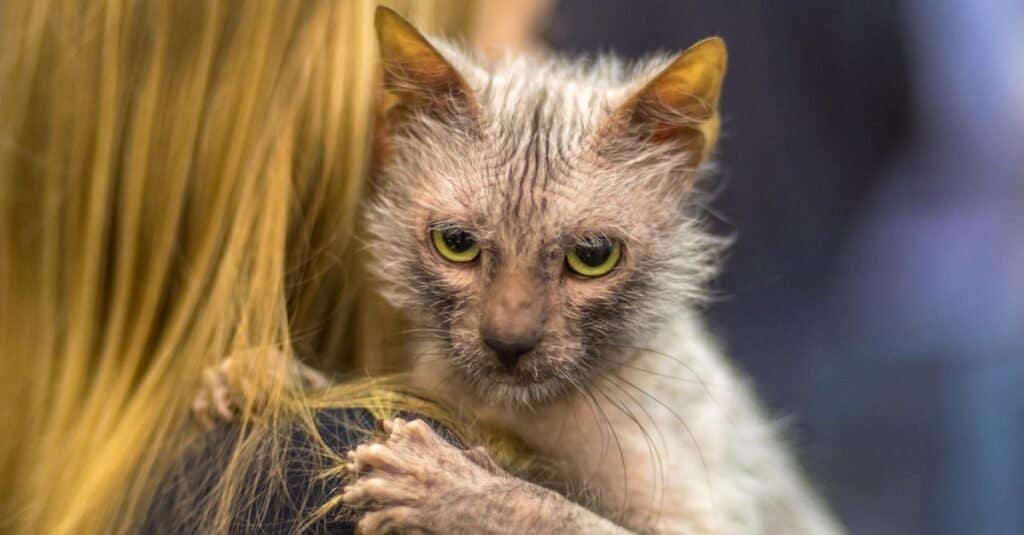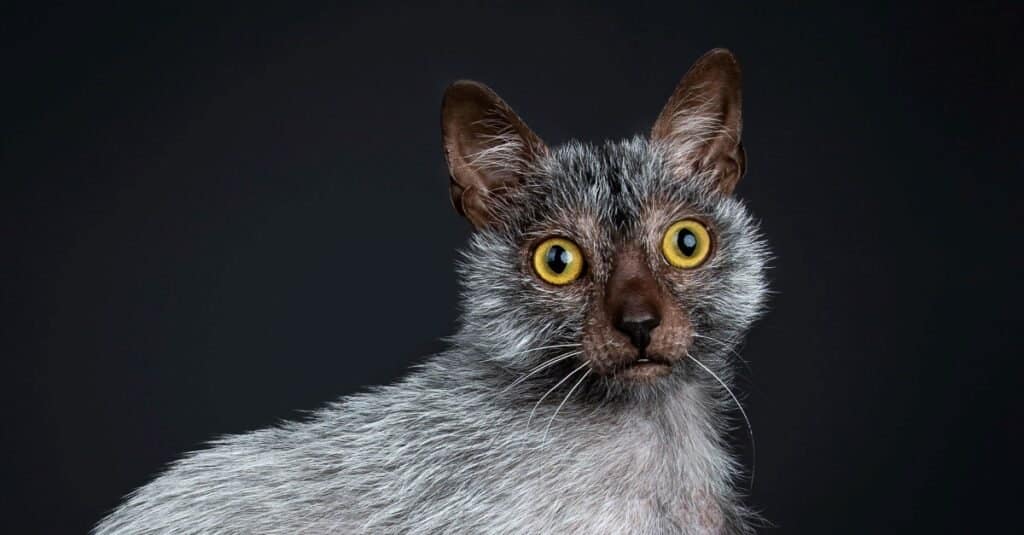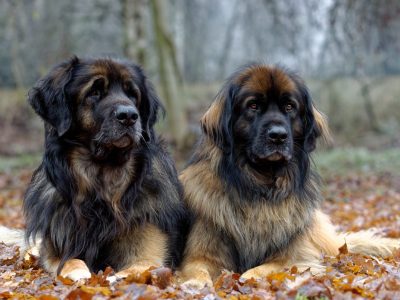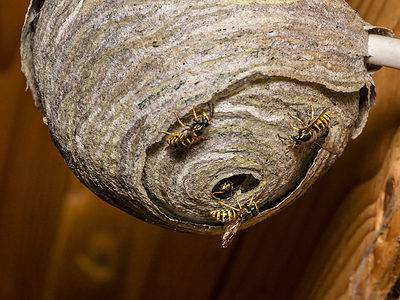Lykoi Cat
Felis catus
Their hairless gene is completely naturally occurring and not a man made mutation
Advertisement
Lykoi Cat Facts
- Name Of Young
- Kitten
- Group Behavior
- Solitary
- Fun Fact
- Their hairless gene is completely naturally occurring and not a man made mutation
- Estimated Population Size
- 100 to 200
- Most Distinctive Feature
- Roan black hair
- Other Name(s)
- Werewolf cat, wolf cat
- Gestation Period
- 65 days
- Temperament
- playful
- Training
- easy
- Litter Size
- 2 to 10
- Diet
- Carnivore
- Lifestyle
- Domesticated Animal
- Origin
- USA
- Number Of Species
- 11
- Slogan
- Wolf like domestic cat breed
Lykoi Cat Physical Characteristics
- Color
- Black
- Skin Type
- Hair
- Top Speed
- 30 mph
- Lifespan
- 12 to 15 years
- Age of Sexual Maturity
- 4 months
- Age of Weaning
- 6 to 8 weeks
View all of the Lykoi Cat images!
“Lykoi cats are an extremely rare breed. There are only around 100 to 200 Lykoi cats in the world.“
Summary
The Lykoi cat, commonly called the “wolf cat” or “werewolf cat,” is a relatively new and rare cat breed that originated from the domestic short-haired cat via natural mutation. It is estimated that this mutation developed over about 20 years. They were initially thought to be the mutated form of Sphynx/Devon Rex cats. However, DNA testing revealed that they came from short-haired cats. Their name, Lykoi, means “wolf” in the Greek language.
Lykoi cats are only found as pets and make extremely loving, adaptable, and docile companions. While you might be intimidated by its wolf-like appearance, the Lykoi cat’s temperament proves docile and friendly. These cats have wedge-like heads and slender bodies.
5 Lykoi Cat Fun Facts
- All of the living Lykoi cats are thought to be natural mutations of feral or domesticated short-haired cats. They were only officially recognized as a breed in 2011.
- There are fewer than 100 show-standard Lykoi cats in the world, making them an incredibly rare breed.
- Their name comes from the Greek word Lycos which means wolf, referencing their wolf-like faces and mangy fur.
- Lykoi cats can change their color when exposed to sunlight or heat – a rather unusual trait for a mammal and more so for a cat. Their skin is usually pink, but it turns dark when the cat is exposed to sunlight.
- Some Lykoi cats may be covered in a dense coat of hair, while others will be completely hairless.
3 Pros and 3 Cons of Owning Lykoi Cats
| Pros | Cons |
|---|---|
| Ideal pets. Lykoi cats are very family-friendly and blend in well within a household. They are particularly affectionate, even more than most breeds. | Separation anxiety. While they are very affectionate cats, they often get lonely if left alone for long periods. |
| Get along with kids, cats, and dogs. If you have kids around, Lykoi cats will be a great addition to your household, as they get along well with children and other animals. | Not hypoallergenic. Adult Lykoi cats with fur are heavy shedders. Thus, they will likely trigger cat allergies. |
| Fare well indoors. Since this breed is known to come from domestic and stray short-haired cats, they are pretty used to the indoors, so they are relatively low maintenance. | Need frequent baths. Hairless Lykoi cats need more care than other breeds due to their exposed, oily skin. Thus, they need a bath every one to two weeks. |
Lykoi Cat Size and Weight
The Lykoi is a medium-sized cat. On average, their height is the same as that of a domesticated short-haired cat, around 8 to 10 inches for a male and slightly smaller (6 to 8 inches) for a female. The average length for males is 12 to 15 inches and 9 to 12 inches for females.
Due to their slender bodies, they weigh less than an average short-haired cat. They have an average weight of eight pounds, with the males usually heavier than the females. They also have a less dense coat compared to other short-haired breeds.
| Height (Male) | 8 to 10 inches |
| Height (Female) | 6 to 10 inches |
| Length (Male) | 12 to 15 inches |
| Length (Female) | 9 to 12 inches |
| Weight (male) | 6 to 12 pounds |
| Weight (female) | 4 to 8 pounds |
The Best Cat Food for Lykoi Cat
Despite their unique appearance, the nutritional needs of a Lykoi cat are pretty much the same as those of all other domestic cats. However, keep in mind that every individual domestic cat has its likes and dislikes. As carnivores, you must ensure that their diet is rich in meat proteins, carbohydrates, fats, and minerals such as iron, calcium, sodium, chloride, and magnesium. And the occasional treats are always a plus. A cat food brand that abundantly meets these requirements is ACANA Cat, Protein Rich, Real Meat Premium Dry Cat Food.
The meal portions for a Lykoi cat vary by age. For example, a kitten will require several small meals throughout the day compared to an older, senior cat that will only eat one to two times a day, depending on their activity. Also, their diet should not include any cereals or grains, as they are prone to grain intolerances and digestive problems.
Lykoi Cat Common Health Issues

Lykoi’s sensitive skin should be checked by a vet regularly.
©Jaroslaw Kurek/Shutterstock.com
Since Lykoi cats are a relatively new cat breed, it is still too early to determine any potential genetic issues. However, here are some common health problems that have been identified in Lykoi cats:
- Skin problems – Lykoi cats have very sensitive skin, especially those with less hair. Their skin is not protected by a thick layer of fur, so it can get very oily and irritated. It is important to get it checked by a vet regularly.
- Feline Infectious Peritonitis – This is a common virus referred to as a “feline coronavirus” that has been affecting cats.
- Kidney Problems
- Heart issues
- Arthritis – By the age of 10, Lykoi cats become increasingly susceptible to arthritis, weakened bones, and other orthopedic problems.
- Hyperthyroidism – An overactive thyroid can cause problems such as vomiting and diarrhea in cats. To avoid this, incorporate iodine in your cat’s diet.
Lykoi Cat Temperament
Lykoi cats have very easygoing and friendly personalities. Some of their most attractive traits include playfulness and affection. Younger Lykoi cats can also be incredibly energetic. This breed is an exceptionally affectionate version of short-haired cats. They love playing with toys, solving puzzles, and scratching. After a full day on their own, these cats like to spend time cuddling with their owner as they sleep. These cats are also open to strangers, although they might initially be shy. In addition, they can also be very playful with children, other cats, and dogs in their environment once they get used to their presence.
| Affection level | High |
| Friendliness to humans | Very high |
| Friendliness to other pets | High |
| Playfulness | High |
| Intelligence | Medium |
How To Take Care of a Lykoi Cat
Generally speaking, Lykoi cats are low maintenance. They don’t suffer from any serious health issues. However, they have high energy requirements, considering how playful they are. Owners should stack their diet with protein to provide them with enough energy. Overall, as long as you bathe them often, take them for regular vet checks, and respond to their affectionate behavior, you don’t have to worry about much with these felines!
Lykoi Cat Maintenance and Grooming
The density of a Lykoi cat’s coat may vary from very heavy to hairless. Any hair found on these cats is quite short. While younger Lykoi cats may not shed often, older cats will shed much more. They typically shed their coat twice a year. In some cases, they may shed their whole coat, leaving them entirely bald. They need to be brushed at least once or twice a week to ensure there are no knots. In addition, they should also be bathed every one to two weeks to prevent oils from building up on their skin. Owners should use a moisturizing shampoo to avoid skin dryness, which could lead to acne and blackheads.
These cats can also have a build-up of oil in their ears and nails, so you should clean them every week with cotton and wipe their claws with a soft cloth. Trim their nails every two weeks and keep their food bowls as clean as possible.
Schedule a checkup with your vet if you notice any redness or inflammation in their ears or paws. Brushing their teeth weekly and wiping their eyes for any deposits after they wake up from a nap is also advisable.
Since their coat is thinner than that of the domestic short hair, they should be kept inside exclusively. Their coat provides little to no protection from the cold, so there is a chance that your cat might get cold even when inside. It is a good idea to keep a heated cat bed in the house and to invest in a few warm sweaters to keep your Lykoi cozy.
Keep in mind that their mangy fur makes it more difficult to spot any injuries or scabs on their skin. Owners should check their cat’s skin thoroughly while brushing them. An easy-to-identify sign of any health issues is excessive oil production even after bathing.
Lykoi Cat Training

Owners should play with their Lykoi for at least an hour every day to keep them happy and healthy.
©iStock.com/Nynke van Holten
Lykoi cats are pretty easy to train since they are adaptable to new environments and humans. They are not climbers, so you don’t have to worry about them jumping on top of shelves or furniture. A medium-sized cat tree, scratching posts, and a handful of toys should suffice. It is important to remember that every Lykoi develops its own preference for playing. Let them take the lead and follow what they like when you play with them. Overall, as long as you keep them happy, they will remain affectionate and obedient toward you.
Lykoi Cat Exercise
Lykoi are very playful and intelligent cats that require high amounts of physical activity to be happy. In other words, you will need to keep your cat engaged, or else it might become clingy or lethargic. These cats do not do well outdoors as their fur doesn’t provide enough protection from the elements or the cold. So, it is advisable to keep them inside and play with them for at least an hour every day to keep them happy and healthy.
Lykoi Cat Kittens
The average litter size of Lykoi cats can range from two to 10 kittens. Their babies are born blind and often with a full coat of hair. You should monitor them and ensure they receive their mother’s milk and supplement it if necessary. They require a high-protein diet and need a lot of play time when young. Kittens generally feed on their mother’s milk for six to eight weeks before transitioning to solid foods. They are fully grown at around a year old.
Lykoi Cats and Children
Lykoi cats are very friendly towards children and other pets in the house. They might be shy at first, but once they recognize that the kids and other pets are not threats, you will see them being their playful selves again. Once they become used to the pets and humans, they can exhibit a guarding behavior if they feel that the people of the house are under any threat. It’s often okay to leave your kids with a Lykoi cat, but make sure your kid knows not to annoy the cat and that your child is not overly aggressive when playing. Otherwise, the cat may scratch your child as a defensive instinct. As with every other cat breed, exercise caution and make sure to supervise children if possible.
Popular Names for Lykoi Cat
The Lykoi cat has been given the following nicknames:
- Wolf cat
- Werewolf cat
Since Lykoi cats are relatively new and rare, it’s hard to pinpoint the popular names for Lykoi cats specifically. But some popular names for cats in general are:
- Luna
- Lily
- Cleo
- Kitty
- Sunny
- Cheeto
- Charli
- Loki
Famous Lykoi Cat
You’d be surprised to know that one of the most famous felines as of late is a Lykoi cat named Shalnavazz Mehari. As a famous show cat, he has been participating in cat/pet shows around the United Kingdom.
Cats Breeds Similar to the Lykoi Cat
The following cats are similar to Lykoi cats:
- Corn rex cat: A cat breed originating in the UK with very fine fur, making it appear hairless at first glance.
- Sphynx cat: A domestic cat breed originating in Canada with a hairless gene mutation.
- Devon rex cat: An extremely playful and energetic cat breed originating in southern England.
- Scottish fold cat: Scottish cat breed with a very unique mutation that causes the ears to fold forward. Unfortunately, this cat breed has many health issues.
Up Next
View all 98 animals that start with LLykoi Cat FAQs (Frequently Asked Questions)
How much does the Lykoi cat cost to own?
Due to the fact that these cats are scarce, they cost between $1500-2500. There are long waitlists with breeders. Maintaining them costs much less, about $40-100 a month.
Is the Lykoi cat good with kids?
Yes, Lykoi cats are very friendly with children and adults. They can be very playful with kids, other cats, and even dogs.
How long does the Lykoi cat live?
Lykoi cats have a relatively long lifespan and can live between 12 to 15 years.
Is the Lykoi cat aggressive?
Despite their menacing appearance, these cats are not intimidating or aggressive in the slightest.
How rare are Lykoi cats?
Since this is a relatively new breed, there are only about 100 to 200 individual Lykoi cats worldwide.
What is special about Lykoi Cats?
Lykoi cats are known for their sparse fur that gives them a “wolf-like” appearance. The strange mutation occurred naturally through feral short-haired cats.
Thank you for reading! Have some feedback for us? Contact the AZ Animals editorial team.
Sources
- Daily Paw, Available here: https://www.dailypaws.com/cats-kittens/cat-breeds/lykoi
- The spruce pets, Available here: https://www.thesprucepets.com/lykoi-cat-breed-profile-5409320
- Alchetron, Available here: https://alchetron.com/Lykoi
- Purina, Available here: https://www.purina.co.uk/find-a-pet/cat-breeds/lykoi
- Catster, Available here: https://www.catster.com/lifestyle/the-lykoi-the-latest-casualty-in-the-quest-for-designer-cats
- The discerning cat, Available here: https://thediscerningcat.com/lykoi/

















